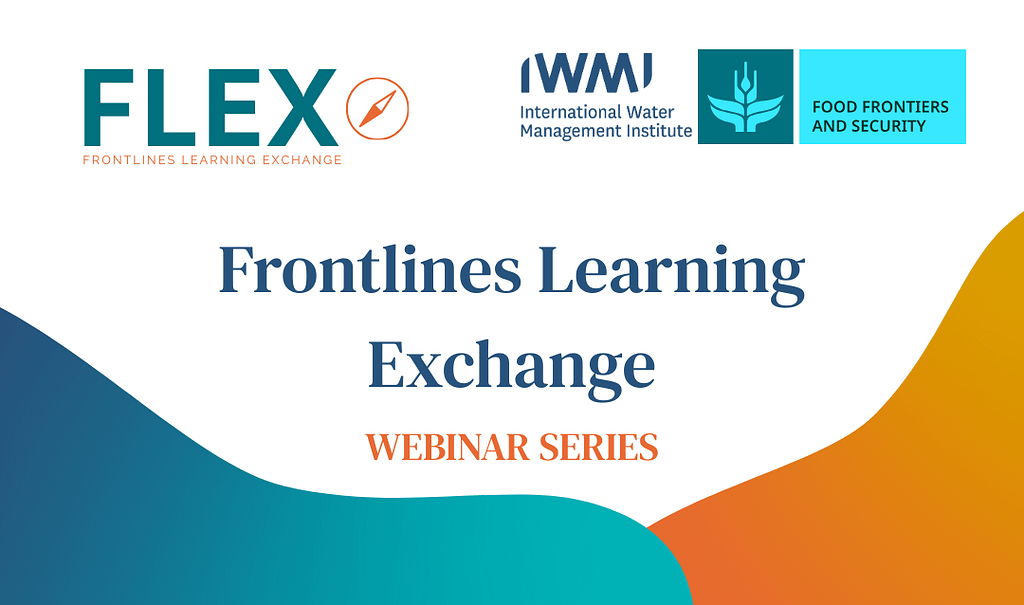The Frontlines Learning Exchange webinar series sheds light on science in difficult places
FLEX shares critical knowledge on climate resilience from conflict-affected settings and offers a space for learning, collaboration and collective action for the benefit of fragile communities. Author: Isis Palay In the world’s most fragile settings, climate extremes, conflict, displacement and weak governance are colliding to create compound crises. These crises are eroding livelihoods, intensifying food and water insecurity and straining

The Frontlines Learning Exchange webinar series sheds light on science in difficult places
FLEX shares critical knowledge on climate resilience from conflict-affected settings and offers a space for learning, collaboration and collective action for the benefit of fragile communities.
Author: Isis Palay
In the world’s most fragile settings, climate extremes, conflict, displacement and weak governance are colliding to create compound crises. These crises are eroding livelihoods, intensifying food and water insecurity and straining already fragile institutions. From the flood-prone lowlands of Ethiopia’s Somali Region to drought-affected farms in Iraq, from resource conflicts in Zambia to growing displacement in Pakistan and Nigeria, millions of people are navigating complex and cascading risks every day.
Yet across these realities, people are not just surviving. They are innovating, adapting and leading change.
The Frontlines Learning Exchange (FLEX) is a new knowledge-sharing webinar series created by the International Water Management Institute (IWMI). FLEX spotlights what is working and what more is needed at the intersection of climate resilience, fragility and food and water systems. It is rooted in the simple premise that the people living and working in these environments hold critical knowledge for building a more resilient future.
FLEX draws from the real-world experience of IWMI researchers and their partners working in some of the most fragile parts of the world. Each session brings together a range of voices, including scientists, community leaders, humanitarian practitioners, private sector actors, local governments and global development partners who are navigating complex challenges at the frontlines of climate and water stress.
The examples they share are stories of adaptation and resilience, such as youth-led efforts in Nigeria to turn water into energy and nutrients, or collaborative flood mapping in Ethiopia that blends drone technology with local knowledge. We also hear from partners in Jordan and Lebanon who are testing inclusive irrigation solutions in refugee-hosting areas, and from communities in Nepal and Zambia that are using disaster-risk tools to ease growing tensions over land and water. These examples reflect the insights that FLEX aims to capture: practical, tested models that others facing similar pressures can learn from, build on and scale.
FLEX does not stop at technical fixes. It explores the institutional, social and financial systems that enable or constrain resilience, from the role of trust in scaling technologies to the financing models that can bridge humanitarian and development divides.
Ultimately, FLEX is more than a webinar series. It is an open, evolving space for learning, collaboration and action focused on the places where resilience is most needed and most possible. By listening to those closest to the challenge and investing in systems that can be scaled, we can move from fragmented efforts to collective impact and support fragile communities not just to cope, but to thrive.
FLEX – Frontlines Learning Exchange – Taking science to difficult places

Register here for the webinars or watch the ones you missed.

